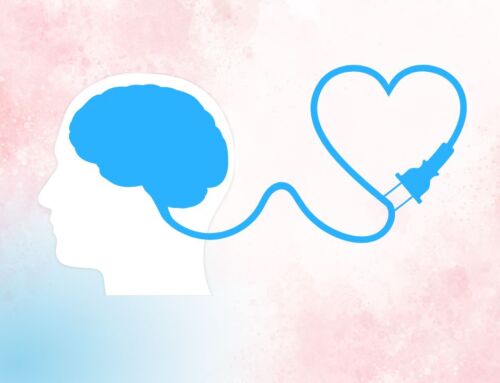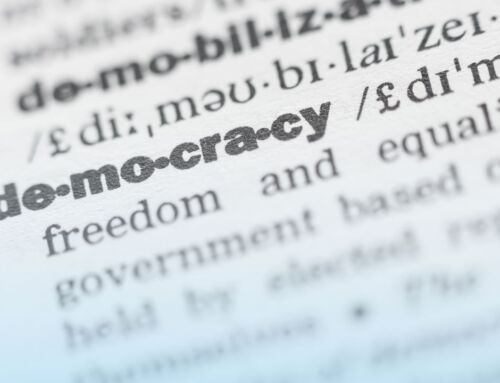Welcome to May, Mental Health Awareness Month! Is it a coincidence it follows Stress Awareness Month in April? I think not.
It’s a fact: Stress is harmful to our emotional, physical, and mental health, and taking steps to reduce stress is one of the important things we can do to guard our mental health!
The goal of Mental Health Awareness Month is to raise awareness of the millions of Americans living with mental illness, educate the public, and advocate for policies that support people with mental illness and their families.
Another objective is overcoming the stigma around mental illness so people feel comfortable and safe seeking help. More than one in five US adults (57.8 million in 2021) live with a mental illness. It’s a huge problem that affects everything from homelessness to families struggling to care for loved ones.
So what can we do to protect our own mental health?
We live in stressful times, and there are many variables beyond our control that contribute to our stress and can erode our mental health. There are some sources of stress we can control, however, and things we can do to reduce stress and improve our mental health.
One area we can control is media consumption.
I’ve written about the bad news that bombards us constantly through multiple channels, and how it takes a toll on our mental health. Today let’s take a look at how SNAP can help us snap out of the funk we get in when we catch ourselves doomscrolling and overdosing on news, politics and current events.
In “SNAP! From Chaos to Calm,” I discuss some factors that keep us glued to our screens and scrolling through news feeds even when we know we should take a break.
“It can feel like if you look away for a moment, you’ll miss some crucial piece of information that could be the key to unlocking all the political chaos that’s been spilling out over the airwaves the past few years.”
While it’s tempting to stay connected to the ever-evolving storylines, it’s also a huge source of stress and anxiety. The more you submerge yourself in the conflict, controversy, and carnage that is the news, the more likely you are to feel tense, angry, and on edge, even after you disconnect.
I’m not advocating sticking your head in the sand and ignoring what’s going on. But if the news is compromising your sense of wellness and inner peace (as it is for many!), it may be time to look at a new way forward.
Here are some pointers:
- 1
Switch it up. How do you typically get your news? TV? Internet articles? Radio? Podcast? Social media streams? When you notice yourself getting stressed out by the news, one thing you can try is switching the form and frequency of your consumption. For example, if you watch news programs every evening, try skipping that for a week and only getting your news from the radio for an hour in the morning, or an hour-long afternoon review of your most-liked online news publications. Then the next week, try another news source and time of day. Breaking the pattern of news consumption that causes you stress by consciously choosing the “where and when” of your news cycle can be empowering.
- 2Take a technology holiday! Power off your phone, leave your television and computer off, and give yourself the gift of some quiet, reflective time. Write in a journal, take a walk in nature, read a book that engrosses you, or spend quality time with people you love. However you spend this time, experience it fully without technology and enjoy being fully present in your body and your life.
- 3Drop Down. Take some time alone and allow yourself to drop down into your current emotional state and see what’s there, not judging it, but simply observing it with curiosity. This is the heart of what mindfulness is all about. It takes practice, but pretty soon you can tune in to your body and notice what’s happening inside you.
- 4Self-Soothe. Evidence shows that putting your hand over your heart — or wherever you most find it soothing — taps into the body’s mammalian caregiver response and releases oxytocin and opiates in your brain to counteract cortisol, the stress hormone. Try different spots out on yourself and see what works best for you.
- 5Take positive action. When the news brings you down, you can take specific action to lift your spirits. One of the best ways to do this is to volunteer for or donate to a cause you believe in. I have personally given money to Together Rising to provide emergency relief to children detained in atrocious conditions across this country and to fund long-term legal accountability to end this disaster. I also donate to the Southern Poverty Law Center and to the Anti-Defamation League to combat hate, and to gun control organizations: Everytown for Gun Safety and Fred Guttenberg’s charity for gun safety in memory of his daughter, Jaime, one of the precious kids murdered in the Parkland High School shooting in Florida.
Finally, don’t forget to practice SNAP!
S = Soothing touch for when you feel activated!
N = Name the emotion: It may be anger, outrage, fear, sadness, hopelessness, etc. Whatever it is, putting it into words will help you calm down.
A = Act: This could be anything from a technology holiday, to merely switching up your news sources, and managing the amount of time you allow the content to take up real estate in your mind. You might practice Loving Kindness for yourself and others, and see how that feels in your body. Once you are settled enough to make a skillful response, you can take a look at what might be helpful and then do it! Taking positive action feels good, and it makes a difference for humanity.
P = Praise: Pat yourself on the back for the good work of regulating your nervous system!
We can exercise control over our state of mind. We can do what we can to help where we can. We can be kind to ourselves, and we can be kind to one another.
Can you imagine what the world might be like if more people did these things?




















